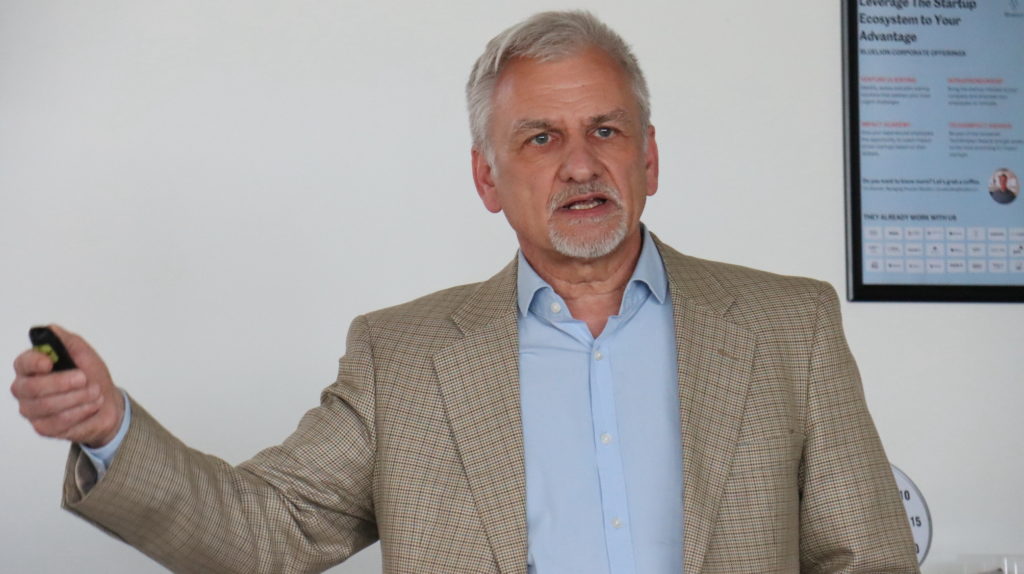A group of alumni joined the Energy Club in Zurich for a fascinating presentation by Dr Gerald Scheuer, Former Head of Global R&D for MV-Drives at ABB, followed by an animated Q&A and dinner.
Dr Scheuer has more than 25 years of experience with ABB in power electronics and electrical drive systems and was a lecturer at ETH Zurich for almost 15 years. He currently is a Consultant with ABB Switzerland and is actively involved in various Standards Working Groups with the Institute of Electrical and Electronics Engineers (IEEE). His presentation addressed many of the overlooked challenges of decarbonizing industry, and the role of some crucial hardware components that are essential for large-scale electrification.



Key takeaways:
- Power electronics are part of the renewable electric energy generation, electric energy transmission and distribution infrastructure and are necessary to enable the transition to electrification. They convert specific dimensions of electric energy such as voltage, current, and frequency to fit specific purposes.
-
Power electronics can lead to substantial efficiency gains and energy savings; it is estimated that roughly 50% of all electric motors in buildings, home, and industrial applications would benefit from a Variable Speed Drive, leading to potential energy savings of over 10% of the overall globally consumed electricity.
Investment decisions based on economics hamper the adoption of power electronics and higher efficiency standards. -
Transition to electrification is a great opportunity to decarbonize, yet it also still poses technical challenges that will have to be addressed as a priority to ensure the required availability and stability, and prevent systemic vulnerabilities such as cyberattacks.
-
Efficiency gains in power electronics circuits are possible but they are marginal, from 98% to 99.5%, for instance. The bigger gains in the electricity value chain can be achieved both at the source, for example by increasing photovoltaic efficiency, which is presently around 20-24%, and on the consumer side, i.e. demand-driven efficiency (e.g. the use of Variable Speed Drives instead of Direct On-Line motor operation).
-
A serious threat for a timely energy transition and electrification is the shortage of raw materials (such as copper) and other bottlenecks in the supply chain, which are significantly slowing down the delivery times of power electronics components and other required system components (transformers, cables, motors, etc.)
-
Like other machinery we use in our daily life, such as cars, power electronics systems require regular maintenance. The most critical component, the electronic control system, has a limited life cycle and may need to be changed every 5-10 years. When maintained properly however, power electronics systems are highly reliable and long-lasting (> 20 years).
Speaker
Dr. Gerald Scheuer, Former Head of Global R&D for MV-Drives at ABB
Organizers
Ursula Teubert, EMBA ‘12D, Energy Club Committee Member
Marco Montefiori, MBA ‘05J, Energy Club President

